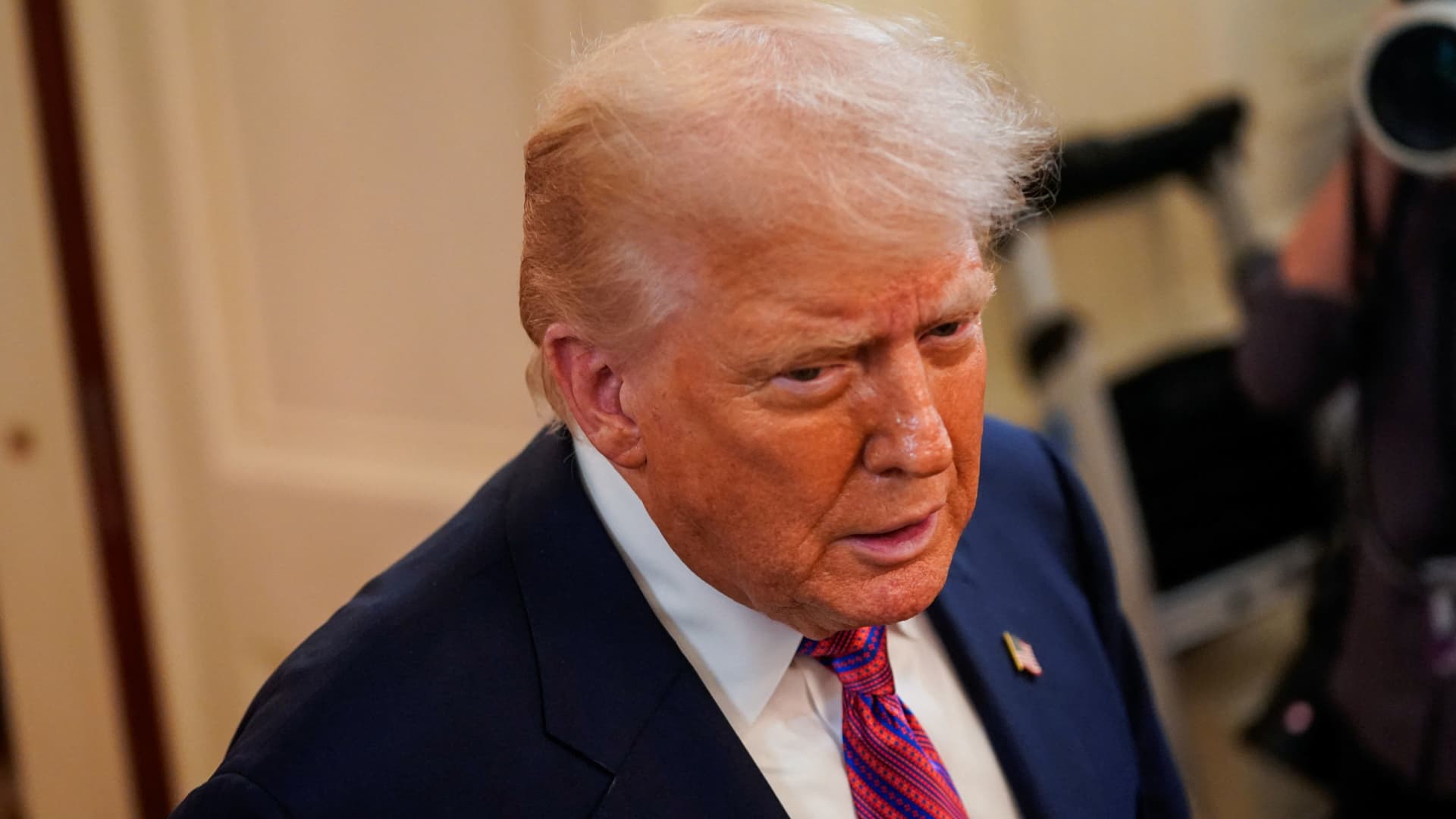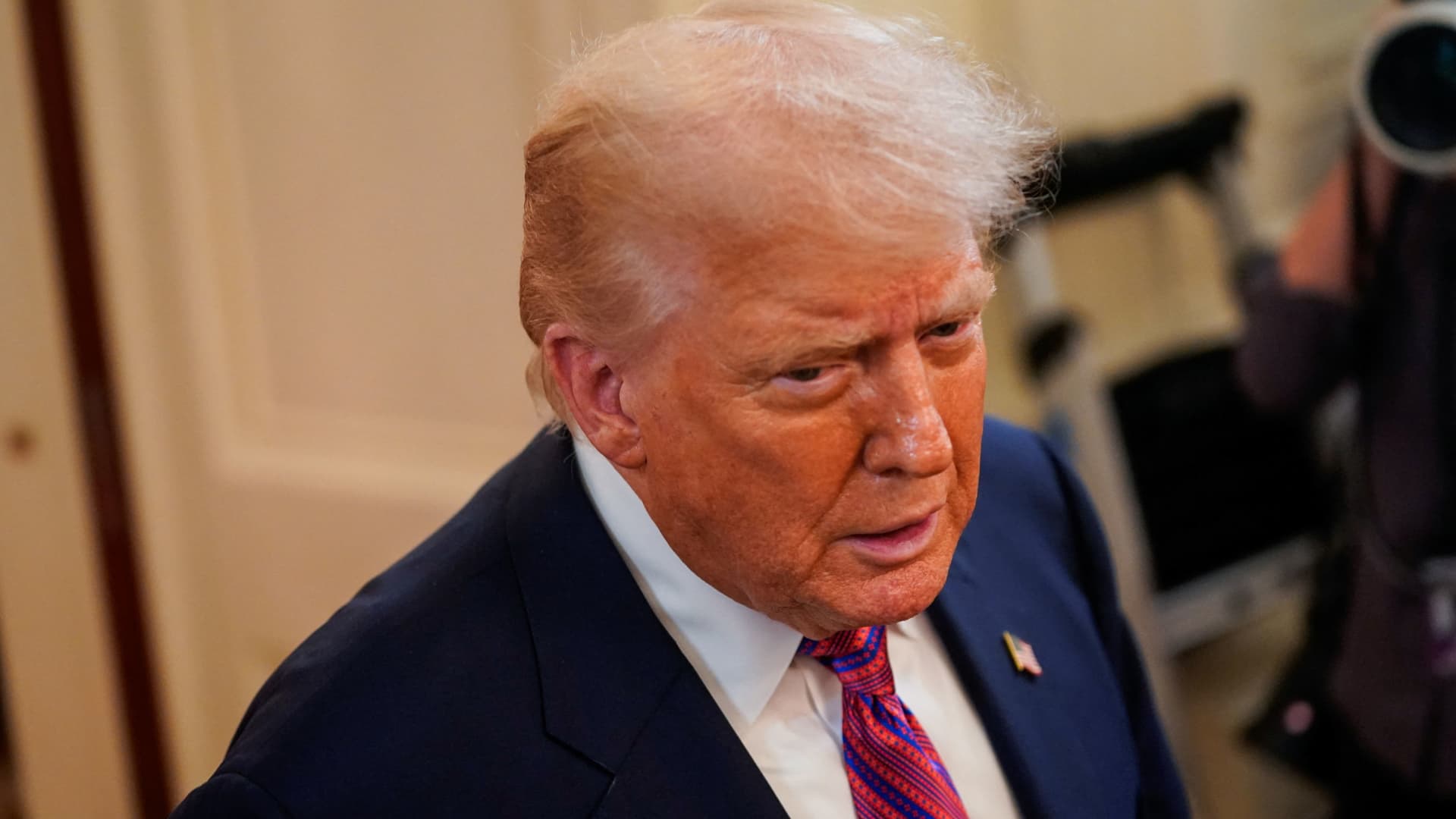Shadows of Influence: Trump, Epstein, and the Unfolding Narrative
Introduction: A Tangled Web of Power and Scandal
The intersection of power, wealth, and scandal often breeds a murky narrative, one that demands careful scrutiny. The connection between Donald Trump and the late Jeffrey Epstein is one such narrative, steeped in allegations, denials, and now, official acknowledgments. This report delves into the recent revelations concerning Trump’s association with Epstein, as highlighted by reports from *The Wall Street Journal* and other news outlets, examining the context, implications, and potential ramifications.
The Attorney General’s Revelation: A Bombshell Briefing
In May, Attorney General Pam Bondi reportedly informed President Trump that his name appeared “multiple times” in Department of Justice (DOJ) documents pertaining to the Jeffrey Epstein case. This revelation, first reported by *The Wall Street Journal*, has ignited a firestorm of media coverage and public speculation. The timing of this briefing is particularly noteworthy. It occurred before the DOJ withheld certain documents related to the case, citing the presence of child pornography and the need to protect victims. This sequence of events raises questions about transparency and the potential for political influence.
Bondi’s role in this matter is also significant. As a staunch Trump loyalist, her involvement in delivering this information adds another layer of complexity. The presence of Deputy Attorney General Todd Blanche during the meeting suggests the seriousness with which the DOJ treated the matter.
Content of the Epstein Files: A Puzzle of Mentions and Omissions
While the specifics of Trump’s mentions in the Epstein files remain largely undisclosed, their mere existence has fueled intense speculation. News reports confirm that Trump’s name was mentioned at least nine times across hundreds of pages of released Epstein files. These mentions, as well as any additional information held in unreleased documents, are at the center of the current debate. It is necessary to examine the possible nature and context of these mentions. Were they merely incidental references, or did they indicate a closer relationship or involvement?
The DOJ’s decision to withhold certain documents, citing the presence of child pornography and the need to protect victims, has further fueled suspicions. The administration’s request to unseal grand jury transcripts in Florida, which was subsequently denied, adds another layer of intrigue. Critics argue that these actions are merely a smokescreen, designed to deflect attention from Trump’s own potential involvement.
A Bawdy Birthday Letter: Tangible Evidence of Association
Further complicating the narrative is the emergence of a letter, reportedly bearing Trump’s signature, in a 2003 birthday album for Jeffrey Epstein. *The Wall Street Journal* reviewed this album, assembled by Ghislaine Maxwell, and found the letter to contain a bizarre message. Details regarding the exact content of the letter are scarce, but its existence underscores the social connections between Trump and Epstein during that period. The existence of this letter adds a tangible element to the narrative of Trump’s association with Epstein, moving beyond mere speculation to documented interaction.
Trump’s Response and Denials: A Combination of Deflection and Legal Action
Trump’s response to these revelations has been characterized by a combination of denial, deflection, and legal action. He has publicly downplayed his relationship with Epstein, claiming it was purely transactional and that he, like many others in New York society, knew him. Trump has also dismissed any suggestions of wrongdoing, accusing Democrats and “foolish Republicans” of perpetrating a “hoax.”
He has gone further, launching a $10 billion defamation lawsuit against *The Wall Street Journal* over its reporting on his connection to Epstein. This legal action signals a determined effort to control the narrative and protect his reputation. The newspaper, however, stands by its reporting, setting the stage for a potentially protracted legal battle.
The Push for Transparency: A Double-Edged Sword
Amidst the controversy, there have been calls for greater transparency and the release of all relevant documents pertaining to the Epstein case. The Trump administration, through Attorney General Bondi, even requested a New York court to unseal grand jury transcripts related to the case in Florida. However, a judge recently denied the Trump administration’s bid to unseal Jeffrey Epstein grand jury transcripts in Florida. Critics argue that the administration’s actions are merely a smokescreen, designed to deflect attention from Trump’s own potential involvement.
The DOJ’s decision to withhold certain documents, citing the presence of child pornography and the need to protect victims, has further fueled suspicions. The administration’s push for transparency, while seemingly laudable, is viewed by some as a strategic maneuver to control the narrative and limit the damage.
Conspiracy Theories and Political Maneuvering: A Distraction from the Core Issue
The Epstein case has become fertile ground for conspiracy theories, with some alleging that powerful figures, including Trump, were involved in Epstein’s alleged crimes. Elon Musk even claimed on X that Trump is in the federal investigative files on Epstein, suggesting that this is why the former President wants to censor the content. Trump himself has contributed to the spread of misinformation, falsely claiming that Barack Obama and Joe Biden “made up” the Epstein files.
Critics argue that Trump is deliberately attempting to distract from the Epstein scandal by focusing on other issues. This strategy of deflection is a common tactic in political crisis management, but it risks further eroding public trust. The spread of conspiracy theories and misinformation only serves to muddy the waters, making it more difficult to discern the truth.
Implications and Potential Ramifications: Legal and Political Fallout
The revelations about Trump’s connection to Epstein have significant implications, both legal and political. Legally, the focus will likely be on whether Trump knowingly associated with Epstein despite his alleged criminal activities. While mere association is not a crime, evidence of direct involvement or knowledge of wrongdoing could expose Trump to legal jeopardy.
Politically, the scandal could damage Trump’s reputation and undermine his future political prospects. The Epstein case is deeply disturbing, and any association with it is likely to be seen as toxic by many voters. The scandal could also galvanize Trump’s opponents and provide them with ammunition to attack his character and judgment.
Conclusion: A Continuing Saga of Power and Accountability
The story of Donald Trump and Jeffrey Epstein is far from over. The ongoing legal battles, the potential release of further documents, and the continuing media scrutiny all ensure that this narrative will remain in the public eye for some time to come. What began as a peripheral association has now become a central question in the ongoing assessment of Trump’s character and legacy. Only time will tell the full extent of their relationship and the ultimate consequences for all involved. The shadows of influence cast by this scandal will continue to loom large, demanding accountability and transparency from those in power.












